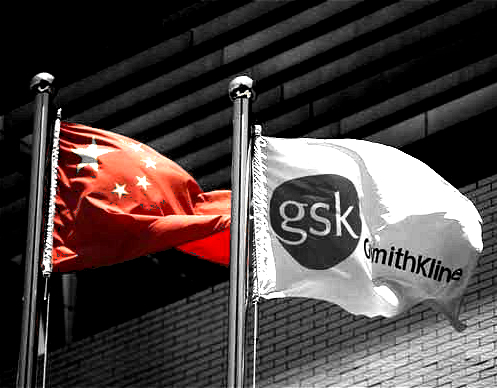Billions in bribery brings jail for big pharm. boss
 Chinese authorities have charged a British executive from pharmaceutical giant GlaxoSmithKline over a range of corrupt activities, in a case designed to send a warning that things in China have changed.
Chinese authorities have charged a British executive from pharmaceutical giant GlaxoSmithKline over a range of corrupt activities, in a case designed to send a warning that things in China have changed.
The Chinese government has accused GSK, one of the biggest names in its field, of operating within a network of corruption.
Police said they had charged executive Mark Reilly and two of his Chinese colleagues with multiple offences, following a 10-month probe which found evidence that the firm made billions of yuan from the bribery of doctors and hospitals.
There have been no specific details for the amount of bribes paid or how much the company had illegally earned. Chinese authorities have previously accused the firm of funnelling up to 3 billion yuan (A$514.6 million) through travel agencies for bribes to doctors and officials.
Chinese legal reporters say such cases would not go to trial unless it was almost a sure thing for the prosecution, suggesting the three GSK execs face the very real likelihood of decades in jail.
Lawyers say the charges are the most serious ever laid against a foreign national for corporate corruption in China.
One of the world’s biggest drug-makers said in a statement this week that the allegations were “deeply concerning”, and it hopes to “reach a resolution” that would see its operations in China continue, as it is a key growth market for Western pharmaceuticals.
MrReilly was a scientist and accountant in former lives, but has been with GSK for over two decades.
He briefly left China when the scandal broke in July last year. He returned voluntarily to assist authorities with the probe, and some reports say he thought this would shield him from charges.
Australian executives with the mining firm Rio Tinto were involved in the last major corruption scandal to hit a foreign company in China. The 2009 case resulted in four executives including a Chinese-born Australian being jailed for between seven and 14 years.
Media company Reuters is also reporting that U.S. authorities are investigating GSK for violations of U.S. anti-bribery laws. They are understood to be looking at breaches of laws forbidding U.S. companies from engaging in bribery while doing business abroad. GSK is under U.S. legal jurisdiction because its shares are listed on a U.S. stock exchange.
Chinese officials have been probing the entire sector, with some more charges expected after visits to other international drug-makers including Novartis, AstraZeneca, Sanofi, Eli Lilly & Co and Bayer last year. The sector is known to be rife with bribery between sales staff and doctors.
“There's a notion that only people of Chinese nationality are going to go to jail here,” Steven Dickinson, a Qingdao-based partner with law firm Harris Moure, has told Reuters.
“People always say they'll never put a Briton or an American in jail. But they will, and this is just that example.”







 Print
Print